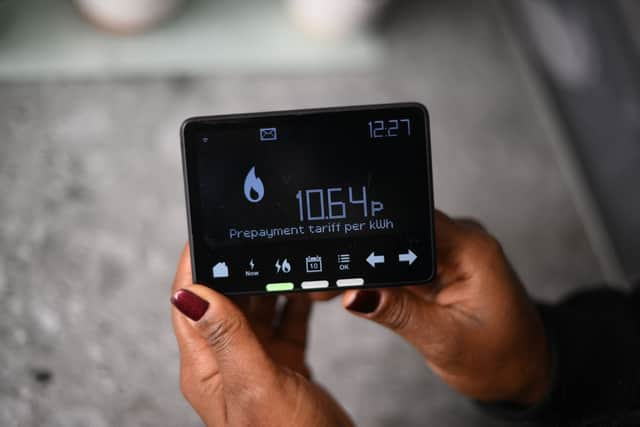Cost of living: Energy bills set to finally fall - what you need to know ahead of Ofgem annoucement
and live on Freeview channel 276
Energy bills will finally start to fall from this summer, it has been predicted ahead of a key announcement by Ofgem next week. Currently, household energy bills are covered by the government’s Energy Price Guarantee (EPG) - which is set at £2,500 a year for a typical household paying for their energy by direct debit.
The EPG effectively replaced the Ofgem price cap, which is set at £3,280 a year. You’ll be on the EPG if you’re on a standard variable rate (SVR) energy tariff, which most people are now on due to a lack of fixed rate deals which tend to be cheaper.
Advertisement
Hide AdAdvertisement
Hide AdThe cost of living crisis has left many across the UK struggling to make ends meet at the moment, particularly due to the rocketing price of energy. So, when will energy bills finally start to fall? Here’s what the experts think.
When will energy bills start to fall?
Cornwall Insight today (Friday, May 19) said it was predicting the Ofgem price cap will drop to £2,053.77 a year in July. If this happens, then prices will fall below the EPG for the first time since it was introduced in October 2022.
Cornwall Insight then expects another drop to £1,975.70 a year from October 2023. Ofgem will announce its price cap for July 1 to September 30 next week on Thursday (May 25).
But despite the fact it’s looking like our energy bills will decrease, what we cough up for gas and electricity remains much higher than what we were paying compared to a year and a half ago. The Ofgem price cap stood at £1,277 in October 2021, before it rose to £1,971 in April 2022.
Advertisement
Hide AdAdvertisement
Hide AdIt’s worth noting that both the Ofgem price cap and EPG do not set an absolute limit on how much you can pay for energy - they set a limit on what you can be charged for units of gas and electricity, plus the daily standing charge.
The generic figures are used to illustrate what someone with typical usage can expect to pay over a year. It means you could can end up paying more or less, depending on how much energy you use.


How you pay for your energy also has an impact on what you’ll pay. Direct debit is currently the cheapest way to pay and paying on receipt of bill is the most expensive.
The government has confirmed prepayment households, those who are typically on low incomes, will no longer pay more than someone using direct debit from July. British Gas has decided to bring in this rule earlier, with it coming into effect for its customers in April.
Comment Guidelines
National World encourages reader discussion on our stories. User feedback, insights and back-and-forth exchanges add a rich layer of context to reporting. Please review our Community Guidelines before commenting.
